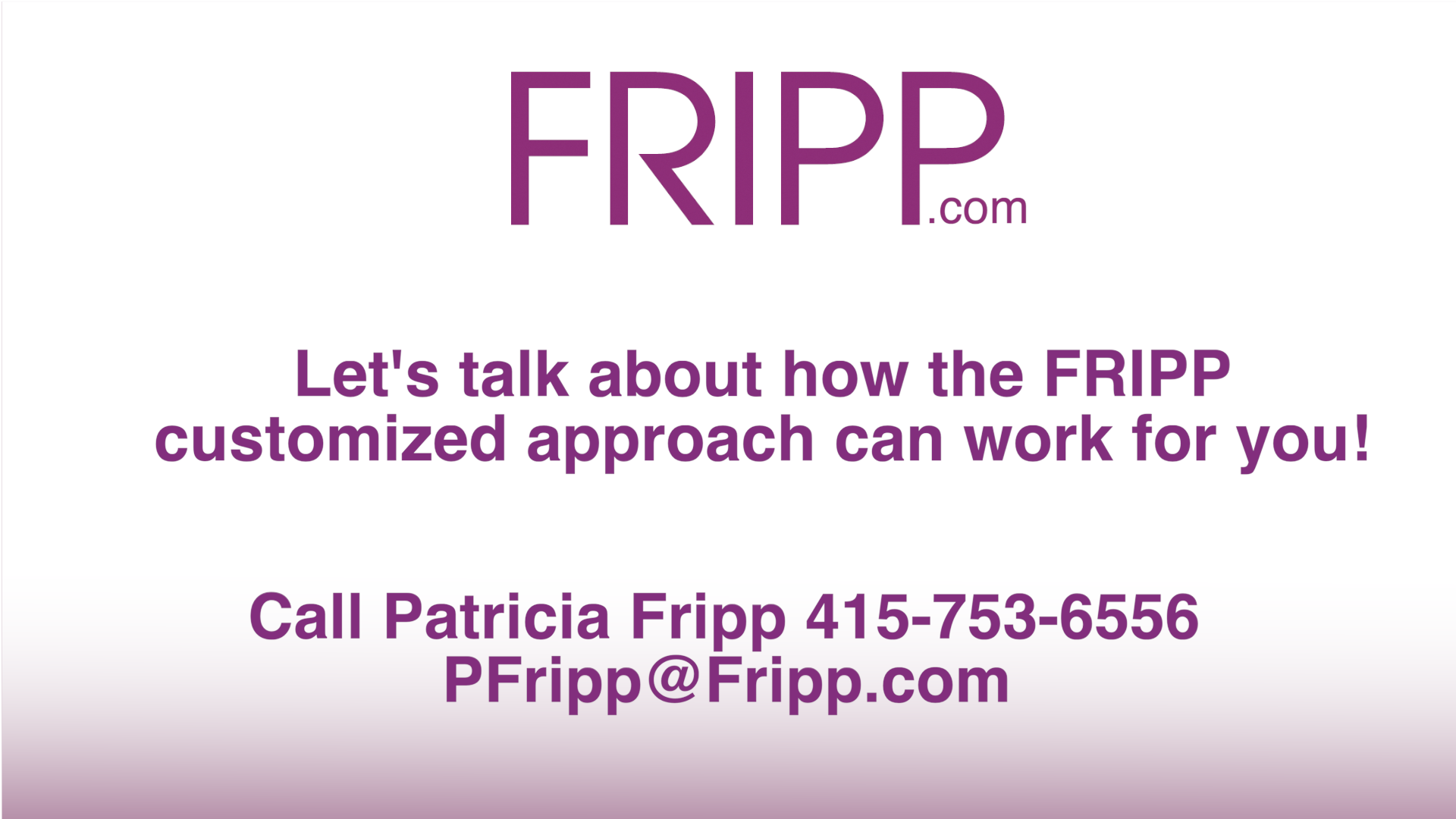The National Speakers Associations’ first president Bill Gove told me, “Fripp, the written word is for the eye. The spoken word is for the rhythm.”
Understanding the difference between the written word and the spoken word was just one sign of Bill’s brilliance as a speaker.
Imagine you are having a conversation with a friend, and you make a statement.
In a conversation, the friend would likely respond with a question. Your audience would recognize that as a conversation, even as you deliver a speech. Important: The secret of making an emotional connection is to speak to the audience as if you were having a conversation with one person––50 or 100 or 300 times.
In other words, what if you said to your audience, “How often have you had the experience . . .” Or “If you had met me when . . .” Or “I don’t know what your experience is, however….” Everyone in the audience would feel that you were talking to them. No, a speech is not a conversation, but it needs to sound conversational. This principle is exactly the same in a recorded message.
Mary, the principal of a very exclusive girls’ school, came to me and said, “Patricia, help!”
Every year, I send a video of welcome to the parents and an introduction to the year ahead. I just watched my performance from last year, and I was very disappointed. Can you help?”
I asked, “Have you prepared a script?”
She answered, “Yes.” With a short message, every word counts. As her message was prerecorded, that was a great idea.
After looking at her script, I explained, “You are a very good writer. However, your script is written, and it doesn’t sound spoken.”
We went over what she had written to make it sound more conversational.
For example, she thanked parents for responding to her survey. I explained the power of delivering the dialogue, not reporting on the dialogue. My advice was, “Why don’t you speak as if to one person in your office? Then, use the parents’ own words from the survey as if they were speaking to them. Use quotation marks to highlight their comments. This will make your presentation sound conversational. With shorter sentences, it is easier for the audience to reflect and remember what you have said. In the brief pauses, you are able to breathe and the opportunity to smile.”
We shortened Mary’s sentences. One idea or thought per sentence. When she looked into the camera and teleprompter, she felt more relaxed, better prepared, and had fun, and on the third take, it was a wrap!
The bottom line is that you may be a brilliant writer, but do not assume you’ll be a brilliant speaker.
Effective speaking involves more than a script.
On the other hand, you may be a great speaker but not necessarily a great writer. You might transcribe what you think you want to say and then enlist the services of an editor to look better on the page. Use the most comfortable technique, learn to adapt it, and reach out for help if needed.
Knowing the difference between the written and spoken word will make you a better communicator.
The best, easiest, and most convenient way to become a great speaker is through Fripp Virtual Training.
![]()
“I wanted a Super Bowl-quality coach, and I was lucky to be introduced to Patricia Fripp. Her help in coaching and scripting was world-class. With Patricia Fripp on your team, you can go places.”
– Don Yaeger, Long-Time Associate Editor for Sports Illustrated magazine, Award-Winning Keynote Speaker, 13-Time New York Times Best-Selling Author
“Patricia Fripp is a genius speech coach. Even for seasoned professional speakers.” Tracy Hooper, President, The Confidence Project
“As a seasoned speaker coached by Patricia Fripp has helped me deliver my game-changing message with more power and eloquence. My client testimonials and feedback prove it.” Ron Karr, CSP, Past President, National Speakers Association
“Your coaching, along with FrippVT, helped us land one of our biggest sales ever.” Mike Stryczek, President & CEO, AB&R
“As a speech coach, Patricia Fripp is a miracle worker.” Larraine Segil, Chairman and CEO, Exceptional Women Awardees Foundation.
“I would have paid $3000 for a year of FrippVT.” Mitzi Perdue, Professional Speaker and Author.
Make The Spoken Word Work for You
Just a few of the many complimentary resources on Fripp.com to help you deliver powerful presentations:
- The Heart of Powerful Presentations – Emotional Connection
- How to Tell Better Stories in Your Speeches
- Edit to Make Your Presentation Powerfully Pithy
- Three Ways to Emotionally Connect with Your Audience
- So You Are Nervous about Your Upcoming Speech?
- How to Rehearse for Your Talk
Executive Speech Coach and Hall of Fame Keynote Speaker Patricia Fripp works with those who realize that powerful, persuasive presentation skills give them a competitive edge.
Need help for you or your team on improving important conversations and presentations? The Fripp Customized Approach will work for you. Contact Fripp today!


Bill Gove knew more about speaking than anyone I knew. When we met in 1988 I had been a serious speaker more than thirty years and quickly discovered how little I knew about the art. The differences between prose and dialogue is a challenge. I like to study play scripts to become a better speaker. Thanks, Patricia. We met about the same time and, while we spent little time together, you are an exemplar of excellence.
Gordon, my greatest accomplishment is getting you active again sharing your experience. Your contribution to the https://www.facebook.com/groups/PatriciaFripp/ is wonderful. You have a way of making our newer or less experienced members feel part of the family. Thanks…